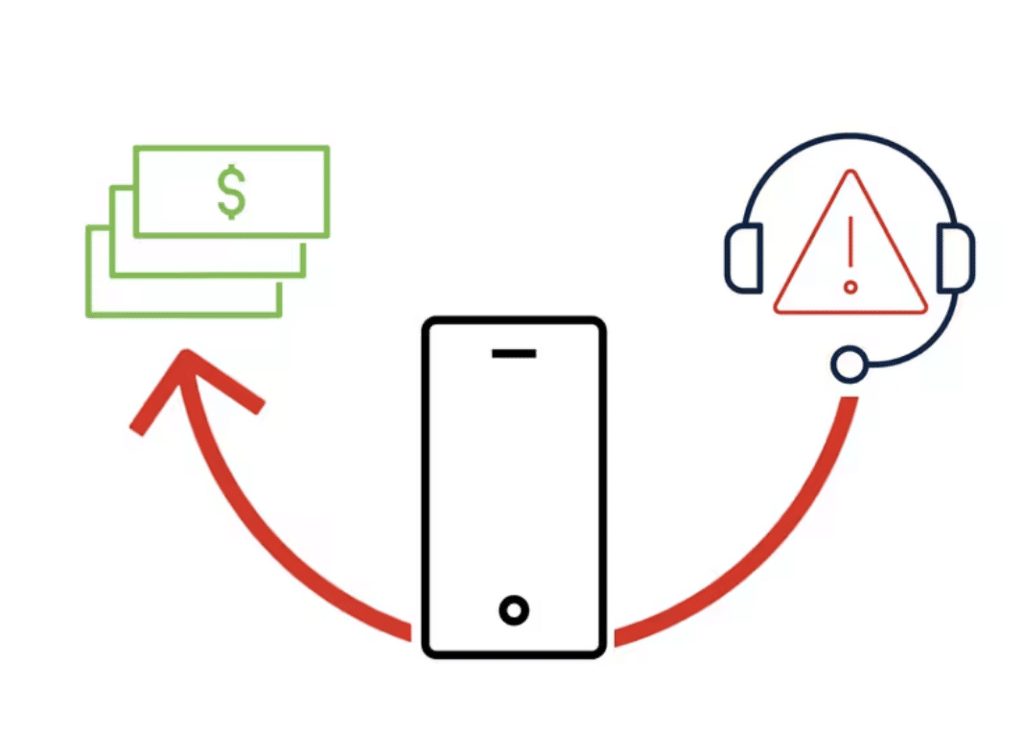Your caller ID can be faked. Don’t Fall for Vishing Scams

Image Credit : Cisco.com
Your phone rings. You glance at the caller ID and see a familiar number—your bank, maybe even a local business or government office. It could even be a friend or neighbor’s number. You answer, only to find yourself on the line with a scammer. But how is that possible? They’ve manipulated their caller ID.
What is Vishing?
Vishing, a combination of “voice” and “phishing,” is a type of social engineering scam where criminals use phone calls to trick you into giving up sensitive information. The goal is often to gain access to your bank accounts, steal your identity, or install malware on your devices.
Scammers often use specialized software to make their phone calls appear to come from a legitimate source. This is called “caller ID spoofing.” They might pretend to be from your bank, the IRS, a tech support company, or any other entity they think will make you feel pressured to act quickly.
With caller ID spoofing, even if you normally ignore calls from unknown numbers, you might be fooled into picking up, making you an easy target.
Red Flags of a Vishing Scam
- Urgency and Threats: Scammers create a sense of urgency, claiming immediate action is needed to avoid problems with your account, a potential arrest, or something equally serious.
- Requests for Information: They’ll try to get you to confirm or give out personal information like your Social Security number, bank account credentials, passwords, or credit card numbers.
- Demands for Payment: Vishing scams might demand payment through unusual methods like gift cards, wire transfers, or cryptocurrency.
- Offers Too Good to be True: Be wary of unsolicited calls offering amazing deals, unexpected prizes, or free services.
Protect Yourself from Vishing Scams
- Don’t Trust Caller ID Blindly: Remember, caller ID can be faked. If you’re unsure, hang up and call the organization back using their official, verified phone number found on their website or a trusted source.
- Never Give Out Sensitive information: Legitimate institutions like your bank or government agencies won’t call and pressure you to give out sensitive information over the phone.
- Be Skeptical: If an offer or situation sounds too good to be true, it probably is. Don’t rush into decisions when you receive unsolicited calls or texts.
- Use Call-Blocking Apps: Consider using call-blocking apps or services provided by your phone carrier that can help identify and block potential spam calls.
- Report Scams: Report vishing attempts to the Federal Trade Commission (https://reportfraud.ftc.gov/) or other relevant authorities. This helps track scammers and protect others.
Final Thoughts
The best defense against vishing is awareness and caution. By understanding how these scams work and the red flags to watch out for, you’ll be better equipped to protect yourself. Remember, if something feels off about a call, trust your gut, hang up, and verify the source before taking any action.
Join our WhatsApp group, Telegram channel, and Facebook Group for kids’ deals, fashion deals, and other crazy deals.
Download our mobile app for hot deal notifications.

